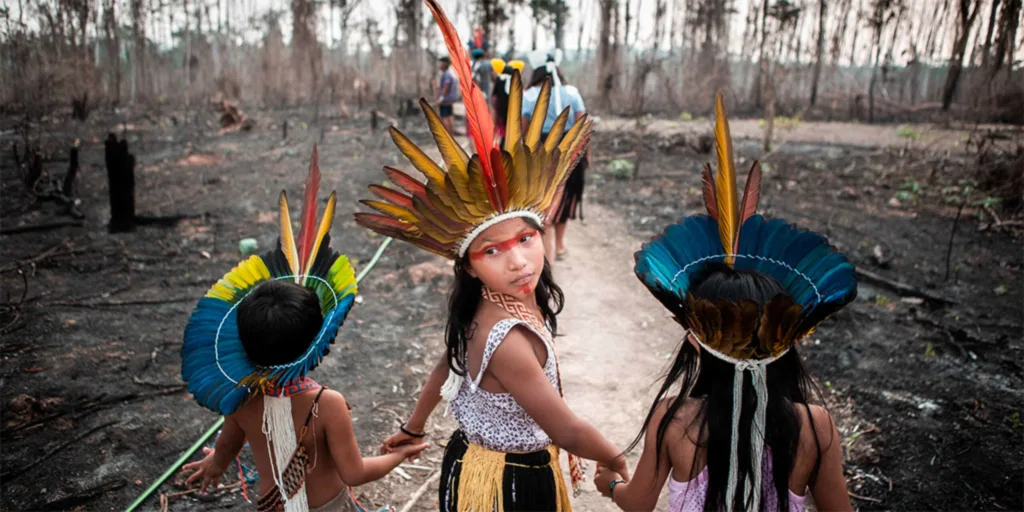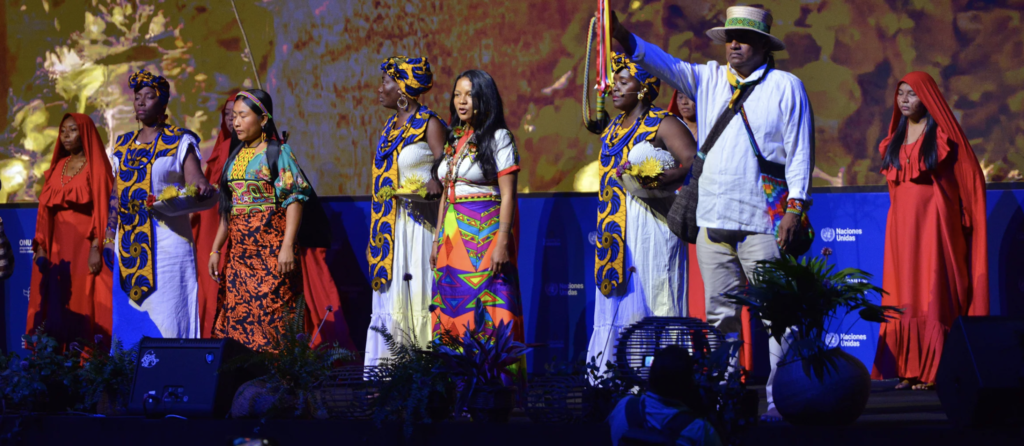As the world focuses on the global conference, COP 16, Indigenous peoples stand at the forefront of key environmental negotiations. In this week’s newsletter, we will explore the goals of COP 16 and highlight how they intersect with United Rising’s mission to support marginalized voices in the fight for environmental justice. As some of the hardest hit by environmental crises, Indigenous communities play a pivotal role in setting and enforcing climate policy and safeguarding biodiversity.
Building Up to COP 16: The Amazon Pact
Ahead of COP 16, leaders of the Amazon meeting in Bogotá. This Congress August exposed their common interest in protecting biodiversity. The meeting resulted in the signing of an accord known as the Pact for Biodiversity Conservation In The Colombian Amazon by indigenous peoples together with the government of Colombia. Through the pact, Indigenous people wish to support broader participation in international forums and defend their rights but they also want acknowledgement for protecting biodiversity. Now, one of the major outcomes was to commit to designate Indigenous territories as conservation areas by 2030—ensuring biocultural connectivity and also driving wider impacts toward the Kunming-Montreal Global Biodiversity Framework.

COP 16: Indigenous Role in Biodiversity Conservation
COP 16, focused on the Convention of Biological Diversity highlights that indigenous peoples are key stewards of biodiversity worldwide. Indigenous approaches to conservation have maintained bio-diversity for generations.
Lands managed by Indigenous communities tend to present better conservation results even when compared with other models of protected areas. Therefore, COP 16 intends to enshrine this legitimacy within official paths towards protection and sustainability. At its core is the principle of Free, Prior and Informed Consent (FPIC), which prescribes that Indigenous representatives must consent to any activities with substantial impacts on their territories. Discussions will also focus on equitable benefit-sharing models that guarantee fair compensation for the use of genetic resources derived from Indigenous lands.
Indigenous Aspirations for COP 16
Indigenous leaders attend COP 16 with a clear set of demands aimed at ensuring their rights and perspectives are integral to global biodiversity efforts. One of the key points they want to ensure is the successful implementation of the above-mentioned Kunming-Montreal Global Biodiversity Framework. Alongside its implementation, setting a budget for the process is also a priority. The funding must be accessible to Indigenous communities for it to be effective. Most leaders additionally necessitate the recognition and establishment of mechanisms that would enable Indigenous peoples and communities to fully participate in decision-making. Lastly, they plan to focus on establishing a program regarding Article 8(j) of the Convention on Biological Diversity, helping to respect, preserve and maintain traditional Indigenous knowledge and practices.

Indigenous women are taking the opportunity at COP 16 to raise their voices for their visions to be heard regarding conservation and sustainability. They aim to highlight their essential role being knowledge-holders and decision-makers in their communities. Indigenous women are emphasizing the interconnectedness of gender equality, environmental protection and cultural preservation. It is vital for them to elevate their voices and empower Indigenous leadership to guide the international community toward a more equitable and sustainable future.
If you want to stay updated on the outcomes of COP 16, keep an eye out for future newsletters and follow us on our social media platforms for the latest news and insights!